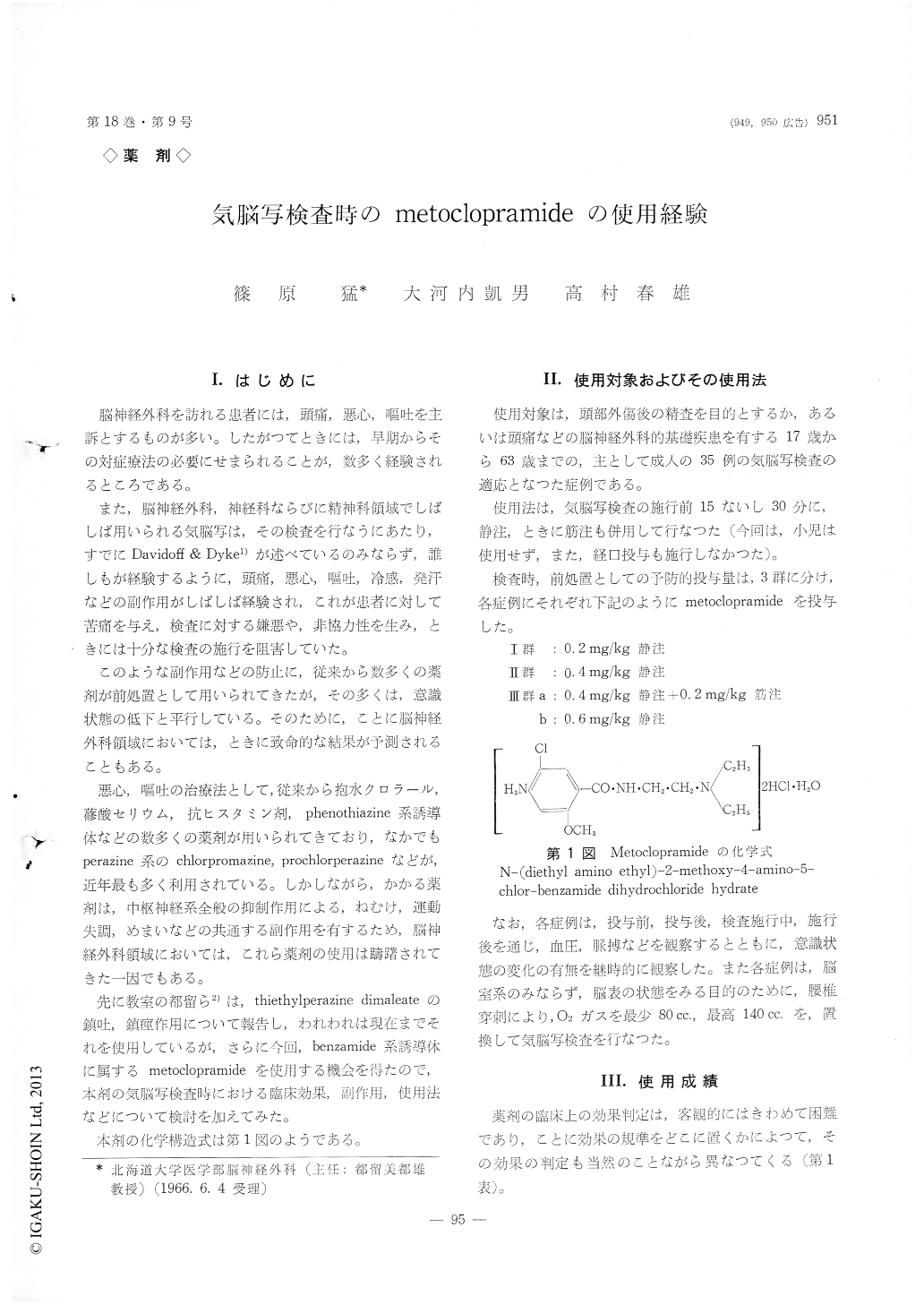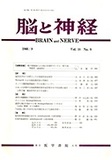Japanese
English
- 有料閲覧
- Abstract 文献概要
- 1ページ目 Look Inside
I.はじめに 脳神経外科を訪れる患者には,頭痛,悪心,嘔吐を主訴とするものが多い。したがつてときには,早期からその対症療法の必要にせまられることが,数多く経験されるところである。
また,脳神経外科,神経科ならびに精神科領域でしばしば用いられる気脳写は,その検査を行なうにあたり,すでにDavidoff & Dyke1)が述べているのみならず,誰しもが経験するように,頭痛,悪心,嘔吐,冷感,発汗などの副作用がしばしば経験され,これが患者に対して苦痛を与え,検査に対する嫌悪や,非協力性を生み,ときには十分な検査の施行を阻害していた。
In order to minimize uncomfortable side effects such as nausea and vomitting, various drugs have been used in the past. However, most of these have many undesirable side effects such as orthostatic hypotension, spasmodic torticollis, dystonic symptoms and supression of consciousness. In this paper, we report the anti-emetic effect of metoclopramide in pneumoenceohalo-graphy.
The drug was administered prophylactically 15-30 minutes prior to the procedure in 35 consecutive cases with exception of children under 16 yrs. of age.
The dosage and route of administrations are as follows :
Group 1 0.2 mg/kg i. v.
Group 2 0.4 mg/kg i. v.
Group 3 a 0.4 mg/kg i. v. +0.2 mg/kg i. m.
b 0.6 mg/kg i. v.
As shown on table 1, 2 and figure 1, anti-emetic effect of the drug was questionable in group 1, but it was quite prominent in group 2 and 3, especially in group 3.
As for side effects, there were 3 patients who complained of transient feeling of general malaise in group 3 b and one in group 3 a. However, there was no change in blood-pressure or was any change in consciousness.
The side effects such as orthostatic hypotension, dystonic movements and drowsiness which are com-mon in phenothiazine derivertives, were noted in none of the 35 cases.
We feel metoclopramide is, at the present time, one of the best routine drug to be used to prevent nausea and vomitting accompanying on pneumo-encephalography.

Copyright © 1966, Igaku-Shoin Ltd. All rights reserved.


